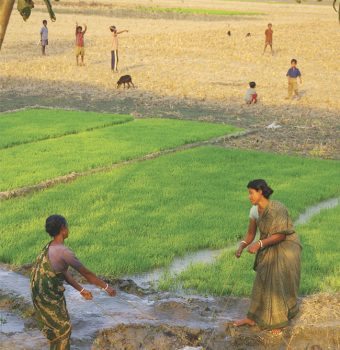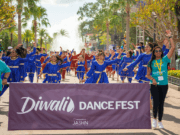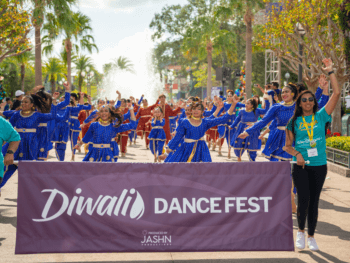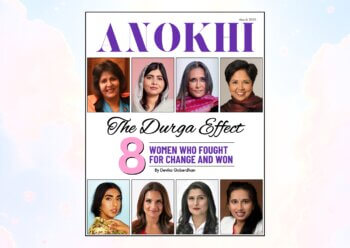
Want to take a vacation with a twist? Here is a look at the trend of “voluntourism”, where you can take a vacation while helping a good cause.
Voluntourism, or vacations that combine holiday activities with volunteering for good causes, are an increasingly popular trend in travelling. Choosing a volunteer vacation can be challenging, so here are three steps that will help you spend your hard-earned dollars and vacation time wisely.
Step 1: Decide what your interests are
Do a little bit of soul-searching and ask yourself some basic questions:
- What floats your boat? For example, is it is working with animals or small children?
- Do you have any special skills? English teachers and doctors are always in demand, but so are engineers, business people and enthusiastic hard workers willing to make a difference.
- Where would you like to go? If you like the bright lights, working on a rural conservation project may not be the best choice for you.
- What are your goals? How do you hope this experience will change you as a person?
Step 2: Find a charity/organization
The most important thing is to find a reputable organization with goals and programs that align with your own interests. Read websites, annual reports, news articles, anything you can find. Also ask to speak with past volunteers of the chosen organization.
- Find out how long the charity has been in operation and if it has worked with international volunteers before.
- Decide if you want to work with a volunteer agency or directly with a charity. Some groups place volunteers in several countries. Their programs are sometimes more pricy than working with a local NGO, but you might prefer spending the bucks to planning your own logistics.
Step 3: Learn as much as you can about the program
Make sure you understand how you as a volunteer and your work fit into the bigger picture. Also, get nitpicky about the details and really understand how your typical day will go.
- What work will you be doing and for how long? Do you have to work weekends or late evenings? Remember it is also supposed to be your vacation.
- What training do you need to volunteer? Will there be orientation or training provided?
- What are the living conditions like? Four-star hotel or camping tents? Are you expected to help with housekeeping?
- What does your fee cover–food, lodging, airport transfers?
- Are there opportunities for sight-seeing or cultural activities built into the program?
- Will you be working in a group or by yourself? Who are your fellow volunteers? If everyone else is a senior and you are twenty-something, that may not work for you.
- Is there any pre-departure assistance–with travel arrangements, visas and recommendations on shots or medication?
- What happens in case of an emergency? Be sure to find out the logistics for your medical care, transportation and communications. If you get injured while volunteering, who covers your costs and do you need to get insurance?
Voices from the field
Canadian Jacqueline Edwards spent the past six months in India working at the Delhi offices of Society for All Round Development (SARD), an NGO that provides services and support for victims of landmines. She gave ANOKHI a first-hand snapshot look into her experience.
What do you do?
Some of my daily tasks include, but are not limited to, editing everything from documents about polio eradication programs to remedial support for underprivileged students, filling in my boss’ visa forms, writing his e-mails, choosing menu plans, curating photo exhibitions, writing prefaces to books, accounting, leading workshops on mine risk education, having meetings with army officials, and writing many project proposals. I have been spending lots of time in the field lately and in different areas and villages.
What is it like working in India?
Work is pretty intense. Indians work a six-day work week and it seems to almost always turn into seven. On my first Saturday no one told me it was a six-day work week! Someone called me at 10:30 a.m. and was like, 'Um, where are you?' and I was obviously in bed. I got my little butt up though and marched to work.
I love everyone I work with. I love lunch where we all share, and it's completely kosher to eat off of other peoples plates with your hands. I love that one day I get to play with kids and do art, and the next I am in a meeting with army officials. Things are never the same; it is wonderful.
What is it like living in India?
I am such a celebrity in rural India that one of my coworkers jokingly says they’re going to charge kids five rupees each to shake my hand in small villages. I feel completely at home in Delhi, probably because everyone is outrageously generous and welcoming. Oh, and don't tell my family but my neighbours are adopting me and finding me a husband asap! Preferably Rahul Gandhi (they are adamant Congress Party supporters). And, long live Shah Rukh Khan!
What is the most rewarding aspect of the work?
I think the most rewarding aspect of my work has been seeing the incredible projects that SARD has in place all through Northern India. In India there are over two million NGOs, and most of them are bogus. It is extremely hard for donors to find good NGOs to support. When I first got here, doing my work in the head office it was hard to see the work going on with SARD and I was skeptical at first, but after tons of time in the field I am now SARD's number one promoter.
What have you learned about yourself through the process?
Everything, including how to share. A lesson we Westerners think we learn as children but don’t really; I think for the first time in my life I actually offer things to others before taking for myself.
WORDS RITIKA NANDKEOLYAR
PHOTOS SARD & RITIKA NANDKEOLYAR














































































































